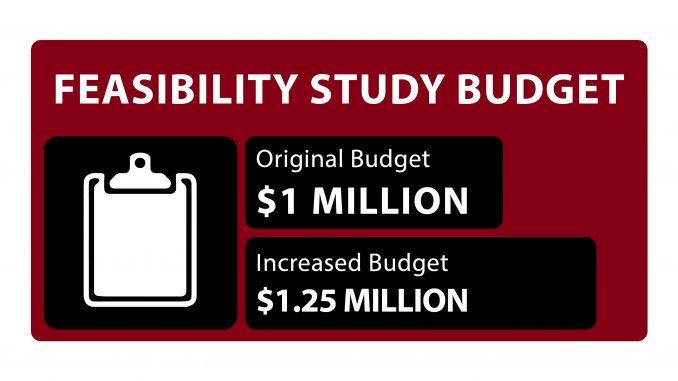
Amid an administrative upheaval that began earlier this month, Temple’s Board of Trustees approved spending an additional $250,000 on a feasibility study for an on-campus football stadium at last week’s meeting.
The Board, which had approved spending $1 million on a study in February, needed additional funding to address community concerns about traffic and evaluate how the project could impact parking, said Ray Betzner, a university spokesman.
The trustees voted in February to spend $1 million on a study of the stadium’s uses and its environmental impact and initial designs. The university now expects to spend $1.25 million on the study.
In February, the university wrote on its website that money would go toward “initial designs and studies to determine how the site can best be used for the proposed complex.”
The Ohio-based architecture firm Moody Nolan was hired in March to conduct the study. Curtis Moody, the firm’s CEO, told The Temple News in April the study should take three to four months and be complete by the end of the summer.

That same month, Ken Kaiser, the university’s CFO and Treasurer, presented the financial details of the proposed stadium at a Faculty Senate meeting. Building the stadium on campus — and therefore not paying rent to the Eagles for Lincoln Financial Field — would save Temple more than $21 million by 2024, Kaiser said.
Newly-appointed Acting President Richard Englert said the impact studies will proceed with a focus on parking and traffic.
“We’re also talking constantly with our community partners,” he said. “We have quite a ways to go yet, but we are fully engaged.”
Evan Easterling can be reached at evan.easterling@temple.edu or on Twitter @Evan_Easterling.
Paige Gross contributed reporting.


Be the first to comment